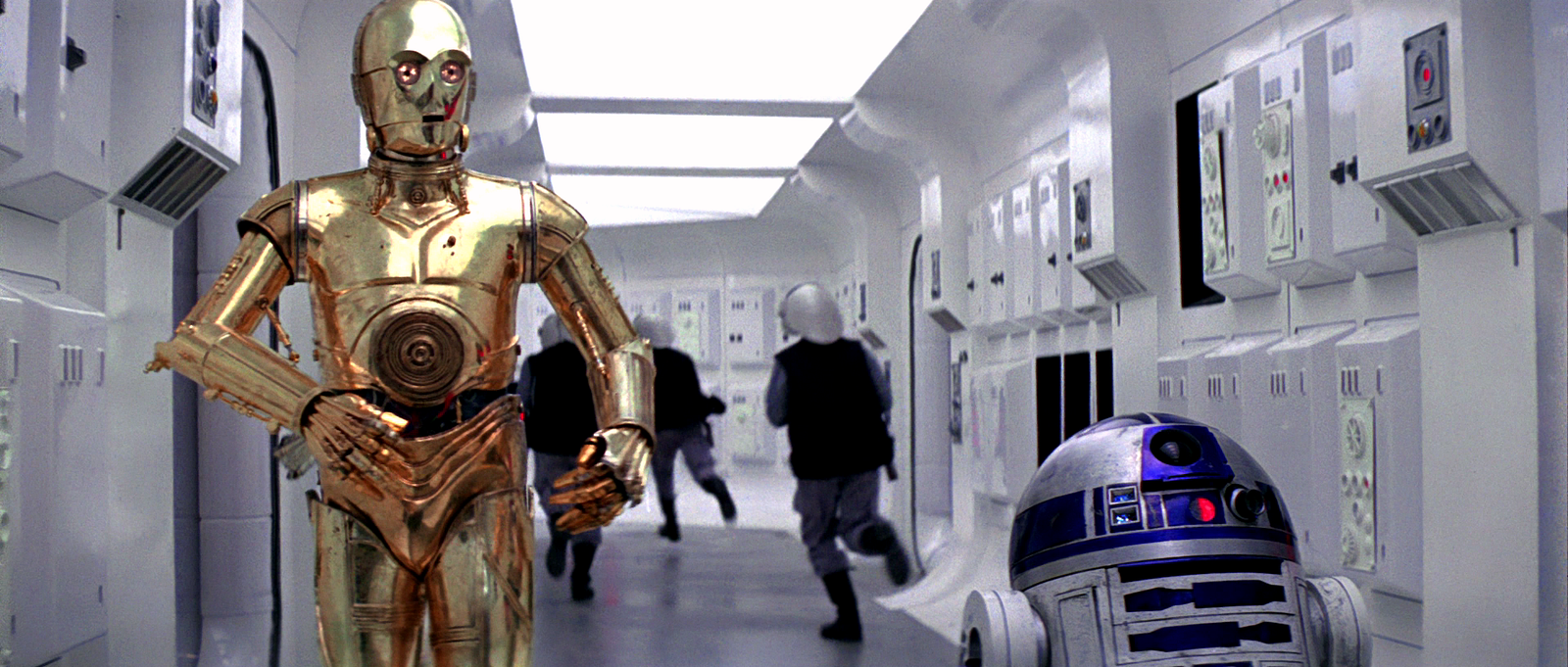Bill Gates Doesn’t Actually Want To Tax Robots
Bill Gates Doesn’t Actually Want To Tax Robots
- Last Updated: December 2, 2024
Matt Quirion
- Last Updated: December 2, 2024



Last week, Bill Gates made headlines when he said, “you’d think we’d tax the robot at a similar level [to the tax for the human worker who the robot replaced].”
This was spun on various news sites as “Bill Gates thinks we should tax robots.” But if you watch the linked video and read the interview, you’d realize he doesn’t really believe this at all. Mr. Gates knows robots won’t be taking anyone’s job. “Robots” — or more precisely, technology — will just obviate jobs entirely.
When we talk about job automation and “robots,” many people may get this idea in their head that we’ll have something akin to 1 robot for every human job role. Indeed, the video in the link above has cute little illustrations of fully autonomous, bipedal robots, complete with faces that might walk around a factory and perform jobs in nearly the same way a human would, just more efficiently and without the need for a lunch break or unions or even sleep.
That’s Not How Job Automation Works
“Job automation” would be better stated as “job obviation.” Technology (which includes robots) allows us — humans — to accomplish things more efficiently, and in doing so we are constantly obviating away human jobs. Technology doesn’t do the same jobs for humanity. Technology eliminates the need for the human jobs to be done at all.

Ice Cutters vs. Refrigeration
A classic example of job obviation via technology is that of Ice Cutters. Ice Cutters would cut large blocks of surface ice from lakes and rivers, and store these blocks of ice in “ice houses” to be sold to people who needed to cool things. But as modern plumbing and refrigeration became ubiquitous, the need for this job evaporated.
Now, almost everyone in the industrialized world has an automatic ice maker in their freezer. But neither the refrigeration nor the plumbing involved in modern-day ice-making was invented or implemented to eliminate ice-making labor. Nobody built a machine to carve blocks of ice out of a river more efficiently. The obviation of ice-making jobs was the result of a confluence between technologies invented for other reasons entirely.
Newspaper Delivery vs. The Internet
The job of newspaper delivery has been experiencing obviation for decades. Television news, radio news, and internet news sources have caused the percentage of US adults who consume news via printed newspapers to drop to just 20%.
News sources still exist and new companies are still forming to provide news content, but the need for a physical copy of that content is being destroyed by technology. The newspaper industry has neither the need nor the capital to invest in newspaper delivery robots. Instead, the job of delivering those copies is being obviated away. All without TV, radio, or the internet having been invented to specifically replace news delivery labor.
Syrup Collectors vs. Plastic Tubing
More technological job obviation: Maple syrup harvesting. Someone’s job used to be walking around, retrieving buckets full of Maple tree sap. Then one day, someone obviated that job with gravity and the invention of plastic tubing. Then again, how much sap harvesting is even needed anymore given preferences for flavored corn syrup?

Cashiers vs. Self-serve Kiosks
Amazon’s new Grocery Store, “Go” is an excellent recent example of job obviation. There aren’t any happy-faced, bipedal robots doing the job of checking out customers in that store. There aren’t even any self-serve kiosks where customers can check themselves out. The technology involved has obviated away the need to have a check-out job. And none of the technology was originally created to eliminate cashier labor.
So what do all of these examples show?
Job Obviation Doesn’t Always Involve “Robots”
It always involves the application of technology, but that technology usually isn’t invented specifically to replace labor. As humanity creates more and more technology, more and more jobs will be obviated, no matter the intent. A “robot tax” would be completely infeasible and ineffective as a means to help society address job obviation.
Bill Gates doubtless knows all of this. Mr. Gates doesn’t really want to tax robots or “robot companies.” What Mr. Gates really wants is for the world to start exploring this idea and to realize just how useless a “robot tax” would be.
Presumably, Mr. Gates wants us to do this in order to quickly eliminate one bad option in the search for a workable solution to the problem of eventual, total job obviation.
The Most Comprehensive IoT Newsletter for Enterprises
Showcasing the highest-quality content, resources, news, and insights from the world of the Internet of Things. Subscribe to remain informed and up-to-date.
New Podcast Episode

What is Software-Defined Connectivity?
Related Articles





